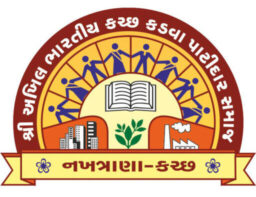 Ramsing Dolji was born after his mother had already given birth to seven daughters. His birth was a result of many hardships, which is why he was given the name Khandubhai, after his mother Khodiar. The title Rao was added to adhere to the British rules, and hence Ramsing was known as Khanderao.
Ramsing Dolji was born after his mother had already given birth to seven daughters. His birth was a result of many hardships, which is why he was given the name Khandubhai, after his mother Khodiar. The title Rao was added to adhere to the British rules, and hence Ramsing was known as Khanderao.
Khanderaoji was a religious person since childhood. After passing the SSC examination, he secured a job as a Jamadar in the British Government. Due to his excellent work, he received several awards during the British regime. However, being a devout Hindu, he refused to bring non-vegetarian items when a British officer asked him to do so. This led to a dispute, and Khanderaoji promptly resigned from his job.
Following that, Khanderaoji delved deeply into spirituality and religion. Shankaracharya appointed him as Maharaj Guru, after which he frequently visited the Kanchi Peeth and developed a close association with His Holiness Dongreji Maharaj, engaging in Satsang with him. Khanderaoji would often sing the 15th chapter of the Gita in English along with its translation. He was an avid follower of Lord Shiva and studied the Gita on a daily basis.
In the 16th century AD, most of the Kutch Kadwa Patidar brothers converted to the religion of Imamshah Bawa Pir. Subsequently, the Brahmins and Bhats (Barotji Wahivancha) were prohibited by the Sayyids through a resolution in Samvat in 1832. The reason for this decision was to prevent the continuation of Brahmin and Vahivancha practices, which kept the knowledge of their identity and religion alive. Despite numerous representations made between 1967 (AD 1911) and 1995 (AD 1939), the saintly mahants of that time and the mahants of the Swaminarayan sect did not provide diksha. This realization led to the conclusion that their history was the same as Bhat’s book, which proved that they were not Hindus. Therefore, in AD 1939, a meeting of all bitter Patidar Samaj was convened to call upon the genealogist to take action.
In the early 20th century, there were several submissions made between 1920 and 1930 AD. In 1939, the Kutch Kadwa Patidar Sanatan Samaj decided to adopt the name Vahivancha. Later that year, Khanderaoji granted our society Par Shakha and Par Gotra, making us a part of Hinduism. Since then, our society has wholeheartedly embraced our Hindu roots and heritage.
At that time, Syed issued an ordinance prohibiting the consumption of cooked Prasad from a Sadhu or Parshad. Violators would be fined 51 koris.
Once again, the Patidar community imposed a night tax on our Vahivancha and documented it in a paper called the Vahivancha. The document includes the signatures of Natha Somji Patel, Nagji Somji Patel, Patel Jetha Bhimji, and Patel Naran Dosa.
After India’s independence, Khanderaoji took on the role of Vahivancha and faced many challenges while working for the betterment of society. Despite being despised, insulted, and having his books thrown away, he remained steadfast and managed to guide the entire society towards the right path. Khanderao’s efforts in reconnecting the Kutch bitter Patidar community to the roots of Sanatan Dharma are invaluable and the community will always be grateful for his contribution.

